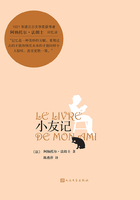Edna's father was in the city, and had been with them several days. She was not very warmly or deeply attached to him, but they had certain tastes in common, and when together they were companionable. His coming was in the nature of a welcome disturbance; it seemed to furnish a new direction for her emotions.
He had come to purchase a wedding gift for his daughter, Janet, and an outfit for himself in which he might make a creditable appearance at her marriage. Mr. Pontellier had selected the bridal gift, as every one immediately connected with him always deferred to his taste in such matters. And his suggestions on the question of dress--which too often assumes the nature of a problemwere of inestimable value to his father-in-law. But for the past few days the old gentleman had been upon Edna's hands, and in his society she was becoming acquainted with a new set of sensations.
He had been a colonel in the Confederate army, and still maintained, with the title, the military bearing which had always accompanied it. His hair and mustache were white and silky, emphasizing the rugged bronze of his face. He was tall and thin, and wore his coats padded, which gave a fictitious breadth and depth to his shoulders and chest. Edna and her father looked very distinguished together, and excited a good deal of notice during their perambulations. Upon his arrival she began by introducing him to her atelier and ****** a sketch of him. He took the whole matter very seriously. If her talent had been ten-fold greater than it was, it would not have surprised him, convinced as he was that he had bequeathed to all of his daughters the germs of a masterful capability, which only depended upon their own efforts to be directed toward successful achievement.
Before her pencil he sat rigid and unflinching, as he had faced the cannon's mouth in days gone by. He resented the intrusion of the children, who gaped with wondering eyes at him, sitting so stiff up there in their mother's bright atelier. When they drew near he motioned them away with an expressive action of the foot, loath to disturb the fixed lines of his countenance, his arms, or his rigid shoulders.
Edna, anxious to entertain him, invited Mademoiselle Reisz to meet him, having promised him a treat in her piano playing; but Mademoiselle declined the invitation. So together they attended a soiree musicale at the Ratignolles'. Monsieur and Madame Ratignolle made much of the Colonel, installing him as the guest of honor and engaging him at once to dine with them the following Sunday, or any day which he might select. Madame coquetted with him in the most captivating and ***** manner, with eyes, gestures, and a profusion of compliments, till the Colonel's old head felt thirty years younger on his padded shoulders. Edna marveled, not comprehending. She herself was almost devoid of coquetry.
There were one or two men whom she observed at the soiree musicale; but she would never have felt moved to any kittenish display to attract their notice--to any feline or feminine wiles to express herself toward them. Their personality attracted her in an agreeable way. Her fancy selected them, and she was glad when a lull in the music gave them an opportunity to meet her and talk with her. Often on the street the glance of strange eyes had lingered in her memory, and sometimes had disturbed her.
Mr. Pontellier did not attend these soirees musicales.
He considered them bourgeois, and found more diversion at the club.
To Madame Ratignolle he said the music dispensed at her soirees was too "heavy," too far beyond his untrained comprehension. His excuse flattered her. But she disapproved of Mr. Pontellier's club, and she was frank enough to tell Edna so.
"It's a pity Mr. Pontellier doesn't stay home more in the evenings. I think you would be more--well, if you don't mind my saying it--more united, if he did.""Oh! dear no!" said Edna, with a blank look in her eyes.
"What should I do if he stayed home? We wouldn't have anything to say to each other."She had not much of anything to say to her father, for that matter; but he did not antagonize her. She discovered that he interested her, though she realized that he might not interest her long; and for the first time in her life she felt as if she were thoroughly acquainted with him. He kept her busy serving him and ministering to his wants. It amused her to do so. She would not permit a servant or one of the children to do anything for him which she might do herself. Her husband noticed, and thought it was the expression of a deep filial attachment which he had never suspected.














